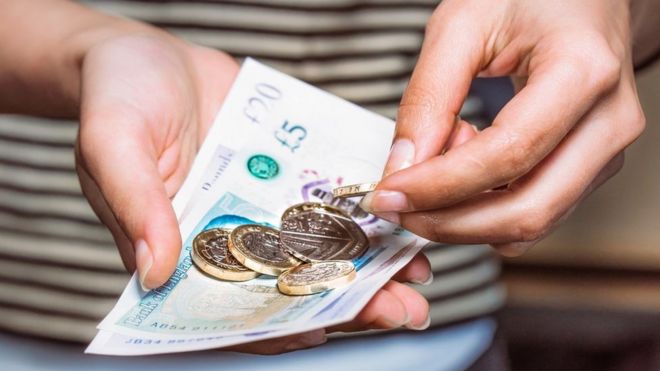 GETTY IMAGES
GETTY IMAGES
Businesses will be able to apply for loans of up to £50,000 from Monday in a scheme backed by the Treasury.
The new scheme, dubbed bounce back loans, will offer smaller amounts than the existing Coronavirus Business Interruption Loan Scheme (CBILS).
But the Treasury says they will be quicker and easier to apply for and will have a 2.5% interest rate.
The form will be seven questions long and the loan is 100% guaranteed by the government.
The CBILS provide loans of up to £5m for companies with a turnover of less than £45m.
The CBIL scheme loans have come in for criticism by some businesses, especially smaller ones. Banks can often apply their usual lending criteria, which makes it harder for smaller enterprises to qualify while locked down.
On Thursday, the number of CBILs agreed was 8,638, down from more than 9,000 the previous week.
Of 52,807 loans applied for, almost 28,000 have still to be approved.
Banks have been criticised for delays in handing out loans but have blamed the heavy workload, the need to complete the necessary credit checks and a shortage of staff.
The government insists these new loans will be easier to apply for.
Who can apply?
While the loans are aimed at smaller businesses, with £2,000 to £50,000 on offer, there is no limit of business size which can apply.
Sole traders and limited companies affected by the coronavirus lockdown may apply.
When will the money be available?
Businesses should apply through the bank with which they have a business account. The Treasury says funds should then be available "within days".
Borrowers answer seven questions including information about turnover and tax details.
What are the terms?
The government will cover the cost of fees and interest for 12 months and businesses get this year as a holiday.
All lenders will charge a flat rate of 2.5% and the loans will last up to six years.
I've applied for a CBILS loan
You can still apply for one of these new loans. You can switch your CBILS application to a bounce back one if it was under £50,000.
Or, if you already have a CBIL you can convert it, the Treasury says.
No comments:
Post a Comment